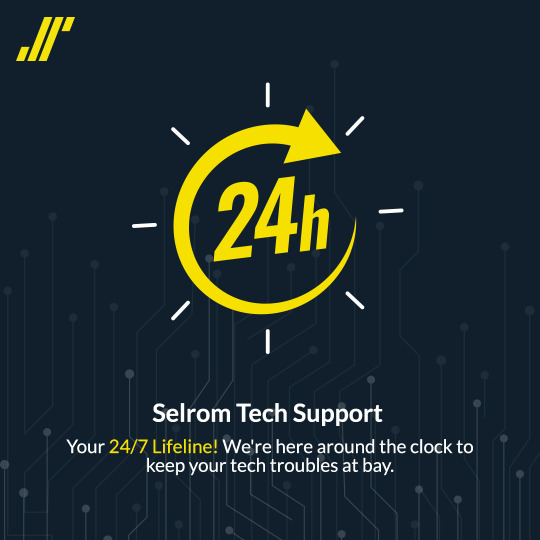Text
Empowering Businesses: The Evolution of E-commerce App Development
In today's digital age, where convenience and accessibility are paramount, ecommerce has revolutionized the way we shop. The emergence of ecommerce apps has further elevated the shopping experience, making it easier and more personalized than ever before. In this comprehensive article, we will explore the world of ecommerce app development, its significance in modern business, key features, and the future trends that will continue to reshape the ecommerce landscape.
The Significance of Ecommerce App Development:
Ecommerce app development involves creating dedicated mobile applications that enable businesses to sell their products or services online. Here's why it holds immense significance:
Global Reach: Ecommerce apps provide businesses with a global platform to reach a wider audience, breaking geographical barriers.
Convenience: They offer unparalleled convenience, allowing customers to shop from the comfort of their homes or on the go.
Personalization: Ecommerce apps use data and AI-driven recommendations to provide users with a personalized shopping experience.
Efficiency: Businesses can streamline their operations and reduce overhead costs, resulting in improved efficiency.
Data Insights: Ecommerce apps collect valuable data on customer behavior, enabling businesses to make data-driven decisions and refine their marketing strategies.
Key Features of Ecommerce App Development:
User-Friendly Interface: Intuitive navigation and an attractive user interface are essential for a positive shopping experience.
Product Catalog: An organized product catalog with high-quality images and detailed descriptions.
Shopping Cart: A secure and user-friendly shopping cart system for adding and managing items.
Payment Gateway: Integration with reliable payment gateways for secure transactions.
Search and Filters: Robust search functionality and filters to help users find products quickly.
User Accounts: User account creation, login, and personalized profiles.
Reviews and Ratings: A system for customers to leave reviews and ratings for products.
Security: Strong security measures to protect customer data and transactions.
Mobile Responsiveness: Ensuring the app functions seamlessly on various mobile devices.
Future Trends in Ecommerce App Development:
The ecommerce app development landscape continues to evolve. Here are some future trends to watch out for:
Voice Commerce: Voice-activated shopping through virtual assistants like Amazon's Alexa and Google Assistant.
Augmented Reality (AR) and Virtual Reality (VR): AR and VR technologies for immersive shopping experiences, allowing customers to "try on" products virtually.
Blockchain for Security: Enhanced security through blockchain technology for secure transactions and data protection.
Chatbots and AI: Advanced chatbots and AI-driven customer support for real-time assistance.
Sustainability: Ecommerce apps will emphasize sustainability by offering eco-friendly products and practices.
Omnichannel Integration: Seamless integration between physical stores and ecommerce apps for a unified shopping experience.
Conclusion:
Ecommerce app development is the driving force behind the digital transformation of retail. It empowers businesses to reach a global audience, provides customers with unparalleled convenience, and continually enhances the shopping experience. As technology continues to advance, ecommerce apps will evolve to offer even more personalized and immersive experiences. They are not just tools for buying and selling; they are the future of commerce, reshaping the way we shop and do business in the modern world. Whether you're a small startup or a global enterprise, embracing ecommerce app development is key to staying competitive and relevant in the ever-changing landscape of retail.
#software#softwaredeveloper#softwares#selrom#businesssoftware#softwaredevelopment#softwaresolutions#technologysolutions#itsolution#tech
0 notes
Text

Guiding you through the tech darkness, 24/7. Selrom - Your beacon of support!
Visit: www.selrom.com
#Selrom#tech#software#Inspirations#Motivation#mobileappdesign#businesssoftware#SoftwareTesting#QAServices#Qa#appsdevelopment#technologysolutions#softwaresolutions#Softwares#softwaredeveloper#softwaredevelopment
0 notes
Text

From chaos to excellence: Selrom's tech transformation magic!
Visit: www.selrom.com
#Selrom#tech#software#Inspirations#Motivation#mobileappdesign#businesssoftware#SoftwareTesting#QAServices#Qa#appsdevelopment#technologysolutions#softwaresolutions#Softwares#softwaredeveloper#softwaredevelopment
0 notes
Text

Selrom's Tech Heroes: Your tech saviors when trouble strikes!
Visit: www.selrom.com
#Selrom#tech#software#Inspirations#Motivation#mobileappdesign#businesssoftware#SoftwareTesting#QAServices#Qa#appsdevelopment#technologysolutions#softwaresolutions#Softwares#softwaredeveloper#softwaredevelopment
0 notes
Text

Turning tech challenges into triumphs.
Visit: www.selrom.com
#Selrom#tech#software#Inspirations#Motivation#mobileappdesign#businesssoftware#SoftwareTesting#QAServices#Qa#appsdevelopment#technologysolutions#softwaresolutions#Softwares#softwaredeveloper#softwaredevelopment
0 notes
Text

India's software industry is expected to reach $100 billion by 2025, according to Anurag Thakur. He believes that new IT technologies will revolutionise business operations in India.
Visit: www.selrom.com
#Selrom#tech#software#Inspirations#Motivation#mobileappdesign#businesssoftware#SoftwareTesting#QAServices#Qa#appsdevelopment#technologysolutions#softwaresolutions#Softwares#softwaredeveloper#softwaredevelopment
0 notes
Text
Unlocking Possibilities: The World of Mobile App Development
In an era where smartphones have become an integral part of our lives, mobile app development has emerged as a transformative force. From ordering food to booking flights, and from monitoring health to connecting with friends, mobile apps have revolutionized the way we live and work. In this comprehensive article, we will explore the dynamic landscape of mobile app development, its significance in today's digital age, the key phases of app development, and the future trends shaping this industry.
The Significance of Mobile App Development:
Mobile app development is the process of creating software applications that run on mobile devices, such as smartphones and tablets. The significance of mobile app development is evident in several aspects of modern life:
Convenience: Mobile apps offer unparalleled convenience, allowing users to access services, information, and entertainment with a few taps on their screens.
Market Reach: For businesses, mobile apps provide a direct channel to reach and engage with their target audience, regardless of location.
Personalization: Apps can be tailored to individual preferences, providing a personalized user experience that fosters loyalty.
Efficiency: Mobile apps streamline tasks and processes, improving efficiency and productivity in various sectors, including healthcare, education, and finance.
Innovation: App development drives innovation, constantly introducing new features and technologies that enhance our daily lives.
The Mobile App Development Process:
Mobile app development involves several phases, each crucial to creating a successful app. Here is an overview of the key phases:
Idea Generation: The process begins with an idea for an app, driven by a specific need or opportunity in the market.
Market Research: Research is conducted to understand the target audience, competition, and market trends. This step helps refine the app concept.
Design: App designers create wireframes and prototypes, defining the app's user interface (UI) and user experience (UX).
Development: Developers write the app's code, integrating features, functionality, and databases.
Testing: Rigorous testing is performed to identify and rectify bugs, glitches, and usability issues.
Deployment: The app is published on app stores (e.g., Apple App Store, Google Play Store) and made available to users.
Marketing and Promotion: Strategies are implemented to promote the app and attract users.
Maintenance and Updates: Regular updates and maintenance are essential to keep the app running smoothly and address user feedback.
Future Trends in Mobile App Development:
The mobile app development industry continues to evolve rapidly. Here are some future trends shaping the industry:
Augmented Reality (AR) and Virtual Reality (VR): AR and VR apps are gaining prominence, offering immersive experiences in gaming, education, and training.
Internet of Things (IoT) Integration: Apps will increasingly interact with IoT devices, enabling users to control smart home appliances and monitor health and fitness.
Artificial Intelligence (AI) and Machine Learning (ML): AI and ML algorithms will power intelligent apps capable of personalization, automation, and predictive analysis.
5G Technology: The rollout of 5G networks will enable faster data speeds, enhancing the capabilities of mobile apps, particularly in streaming and real-time communication.
Blockchain Integration: Blockchain technology will be used in apps for secure transactions, supply chain management, and data verification.
Conclusion:
Mobile app development has fundamentally reshaped the way we live and conduct business. From simplifying daily tasks to offering immersive experiences, mobile apps have become indispensable in our digitally connected world. As technology continues to advance, the future of mobile app development holds exciting possibilities. With innovation as its driving force, this industry will continue to transform the way we interact with technology, making our lives more convenient, efficient, and enriched. Mobile app development is not just about software; it's about unlocking possibilities and shaping the future of our digital landscape.
#Selrom#tech#software#ERP#mobileappdesign#businesssoftware#SoftwareTesting#QAServices#Qa#appsdevelopment#technologysolutions#softwaresolutions#Softwares#softwaredeveloper#softwaredevelopment
0 notes
Text

At Selrom, we fix and find solutions for everything at hand. We ensure that our team is equipped to make everything seamless for you.
Visit: www.selrom.com
#Selrom#tech#software#ERM#Quiz#ERMSoftware#mobileappdesign#businesssoftware#SoftwareTesting#QAServices#Qa#appsdevelopment#technologysolutions#softwaresolutions#Softwares#softwaredeveloper#softwaredevelopment#erpsolutions#itsolution#mobileappdevelopment#technology
0 notes
Text
Streamlining Spiritual Management: The Power of Temple ERP Software
In today's digital age, technology touches every aspect of our lives, even the sacred realms of temples and religious institutions. Temple Enterprise Resource Planning (ERP) Software is revolutionizing the way temples manage their operations and connect with devotees. In this comprehensive article, we will delve into the significance of Temple ERP Software, its diverse applications, key features, and how it is transforming the management of temples worldwide.
Understanding Temple ERP Software:
Temple ERP Software is a specialized digital solution designed to cater to the unique needs of temples and religious organizations. It provides a centralized platform that integrates various functions, including finance management, donation tracking, inventory control, visitor management, and communication tools. This holistic approach enhances operational efficiency, improves transparency, and strengthens the connection between temples and devotees.
The Significance of Temple ERP Software:
Donation Management: Temple ERP Software simplifies the process of managing donations, from tracking contributions to generating receipts and reports. It ensures transparency in financial transactions.
Visitor Experience: It enhances the overall experience for devotees by providing information about temple events, rituals, and historical significance through interactive kiosks and mobile apps.
Inventory Control: Temples often have valuable assets and inventory. Temple ERP Software helps in tracking and managing these assets efficiently.
Communication: It facilitates effective communication with devotees through SMS alerts, emails, and social media, keeping them informed about temple activities and events.
Financial Accountability: Temple ERP Software ensures that the financial operations of temples are conducted with utmost transparency and accountability.
Applications of Temple ERP Software:
Donation Tracking: Accurately record and manage donations, making it easier to track contributions and generate financial reports.
Inventory Management: Keep track of temple assets, artifacts, and inventory, ensuring they are well-maintained and accounted for.
Visitor Engagement: Enhance the visitor experience by providing information about temple history, rituals, and upcoming events.
Financial Management: Streamline financial operations, including budgeting, expense tracking, and auditing.
Communication: Connect with devotees through various channels, including mobile apps, social media, and email, to keep them informed and engaged.
Key Features and Functionality:
Donation Tracking: Temple ERP Software includes features for recording and managing donations, generating reports, and sending donation acknowledgments to donors.
Inventory Control: It provides tools for tracking temple assets, managing inventory, and scheduling maintenance.
Visitor Management: Enhance the visitor experience with interactive kiosks, mobile apps, and information portals.
Financial Reporting: Generate financial reports, budgets, and audit trails for transparency and accountability.
Communication Tools: Connect with devotees through SMS alerts, emails, and social media, keeping them informed about temple events and initiatives.
The Future of Temple ERP Software:
Enhanced Mobile Experience: Mobile apps and responsive web design will continue to play a significant role in temple ERP solutions, making it easier for devotees to engage with temples.
Integration with IoT: Some temple ERP systems may integrate with Internet of Things (IoT) devices for real-time monitoring of temple assets and infrastructure.
Data Analytics: Advanced analytics will help temples gain insights into visitor behavior, donation patterns, and temple operations, enabling data-driven decisions.
Conclusion:
Temple ERP Software is a game-changer for religious institutions, helping them streamline their operations, engage with devotees, and maintain financial transparency. As temples continue to embrace digital transformation, Temple ERP Software will remain a crucial tool in managing and preserving the sanctity of these sacred spaces. With the right Temple ERP solution, temples can strengthen their connection with devotees and ensure that their operations are conducted with the utmost integrity and efficiency. In the digital age, Temple ERP Software is a beacon of modernity that enhances the spiritual experience for all.
#Selrom#tech#software#Inspirations#Motivation#mobileappdesign#businesssoftware#SoftwareTesting#QAServices#Qa#appsdevelopment#technologysolutions#softwaresolutions#Softwares#softwaredeveloper#softwaredevelopment
0 notes
Text

Selrom is your one-stop destination to solve all your tech needs, with Selrom there are only solutions.
Visit: www.selrom.com
#Selrom#tech#software#Inspirations#Motivation#mobileappdesign#businesssoftware#SoftwareTesting#QAServices#Qa#appsdevelopment#technologysolutions#softwaresolutions#Softwares#softwaredeveloper#softwaredevelopment
0 notes
Text
Efficiency Redefined: The Impact of Distribution Software on Modern Businesses
In the ever-evolving landscape of supply chain management, Distribution Software has emerged as a powerful tool to enhance efficiency, streamline operations, and meet the ever-growing demands of consumers. In this comprehensive article, we will explore the significance of Distribution Software, its diverse applications, key features, and the transformative impact it has on modern businesses across various industries.
Understanding Distribution Software:
Distribution Software, often referred to as Distribution Management Software (DMS), is a digital solution meticulously designed to cater to the unique needs of distribution and supply chain management. It provides a centralized platform that integrates various functions, including inventory management, order processing, logistics, and customer relationship management. This holistic approach enhances operational efficiency, minimizes errors, and improves decision-making for businesses involved in distribution.
The Significance of Distribution Software:
Optimized Inventory Management: DMS empowers businesses to efficiently manage their inventory, ensuring the right products are available when needed, reducing overstocking and stockouts, and optimizing warehouse space.
Streamlined Order Processing: It automates the order fulfillment process, from order creation to shipment, reducing manual errors and accelerating order processing times.
Enhanced Customer Engagement: DMS includes CRM features that help businesses understand their customers better, personalize interactions, and provide a more tailored customer experience.
Data Centralization: All critical data, including sales, inventory, customer information, and logistics, are centralized in a secure location, simplifying data access and analysis.
Applications of Distribution Software:
Inventory Control: DMS assists businesses in keeping track of their inventory levels, managing multiple warehouses, and optimizing reorder points.
Order Management: It handles the entire order lifecycle, from order creation and processing to fulfillment and invoicing, reducing manual data entry and errors.
Warehouse Management: DMS helps businesses efficiently manage warehouse operations, including picking, packing, and shipping.
Logistics and Transportation: It optimizes transportation routes, manages carrier relationships, and tracks shipments in real-time.
Key Features and Functionality:
Inventory Tracking: Provides real-time visibility into inventory levels, enabling businesses to make informed decisions about restocking and replenishing products.
Order Automation: Automates order creation, processing, and fulfillment, reducing manual intervention and the risk of errors.
Multi-Channel Integration: Seamlessly integrates with various sales channels, including e-commerce platforms, physical stores, and marketplaces.
Reporting and Analytics: Generates detailed reports on sales trends, inventory turnover, and customer behavior, facilitating data-driven decision-making.
The Future of Distribution Software:
Artificial Intelligence (AI): DMS will increasingly leverage AI to optimize inventory forecasting, demand planning, and route optimization, improving overall supply chain efficiency.
Blockchain Integration: Some DMS solutions may integrate blockchain technology to enhance supply chain transparency and traceability, especially in industries where product provenance is critical.
Conclusion:
Distribution Software is no longer a luxury but a necessity for businesses navigating the complexities of modern supply chain management. It empowers organizations to optimize operations, engage customers more effectively, and adapt to changing market dynamics. As industries continue to evolve and embrace digital transformation, Distribution Software will remain a critical asset in shaping the future of distribution and supply chain management, ensuring operational excellence, customer satisfaction, and sustained growth for businesses in various sectors. With the right Distribution Software, businesses can navigate the challenges of the modern supply chain with confidence, efficiency, and a customer-centric approach.
#software#softwaredeveloper#softwares#selrom#businesssoftware#tech#softwaredevelopment#itsolution#softwaresolutions#technologysolutions
0 notes
Text

Unlocking Success: Embrace the Tech Evolution! Just like technology, our growth requires adaptation. Embrace challenges, navigate change, and stride confidently into new territories. Together, we'll thrive beyond our comfort zones. Ready to conquer the week?
Visit: www.selrom.com
#Selrom#tech#software#Inspirations#Motivation#mobileappdesign#businesssoftware#SoftwareTesting#QAServices#Qa#appsdevelopment#technologysolutions#softwaresolutions#Softwares#softwaredeveloper#softwaredevelopment
0 notes
Text
Selrom's Expert Migration Services, seamlessly embrace the future of business. Book your migration demo today!
Visit: www.selrom.com
#Selrom#tech#software#Inspirations#Motivation#mobileappdesign#businesssoftware#SoftwareTesting#QAServices#Qa#appsdevelopment#technologysolutions#softwaresolutions#Softwares#softwaredeveloper#softwaredevelopment
0 notes
Text
Your partner for success. Contact us today.
Visit: www.selrom.com
#Selrom#tech#software#Inspirations#Motivation#mobileappdesign#businesssoftware#SoftwareTesting#QAServices#Qa#appsdevelopment#technologysolutions#softwaresolutions#Softwares#softwaredeveloper#softwaredevelopment
0 notes
Text
Elevating Quality Assurance: The Role of Software for Hallmarking Centers
In the world of precious metals and jewelry, authenticity, and quality are paramount. Hallmarking, the process of certifying the purity and quality of precious metals, plays a crucial role in assuring consumers of the value and authenticity of their jewelry and precious metal items. To streamline and enhance this critical process, Software for Hallmarking Centers has emerged as a powerful tool. In this comprehensive article, we will explore the significance of Software for Hallmarking Centers, its applications, key features, and the profound impact it has on ensuring the integrity of precious metals and jewelry.
Understanding Software for Hallmarking Centers:
Software for Hallmarking Centers, often referred to as Hallmarking Management Software (HMS), is a specialized digital solution designed to cater to the unique needs of hallmarking centers and assay offices. It offers a centralized platform that integrates various functions, including sample testing, purity assessment, certification, and inventory management. This holistic approach enhances operational efficiency, minimizes errors, and improves the accuracy of hallmarking processes.
The Significance of Software for Hallmarking Centers:
Precision and Accuracy: HMS ensures that hallmarking processes are carried out with precision, accurately determining the purity and quality of precious metals.
Regulatory Compliance: Hallmarking centers are subject to stringent regulations and standards. HMS helps centers comply with these regulations, reducing the risk of non-compliance penalties.
Efficiency and Productivity: By automating key processes such as sample testing and certification, HMS enhances the efficiency and productivity of hallmarking centers, enabling them to process a higher volume of items.
Data Security: All hallmarking data, including test results, certifications, and inventory records, are stored securely in a centralized database, reducing the risk of data loss or tampering.
Applications of Software for Hallmarking Centers:
Sample Testing: HMS facilitates the testing of jewelry and precious metal samples to determine their purity and quality.
Certification: It generates hallmark certificates that provide consumers with assurance about the authenticity and quality of their items.
Inventory Management: HMS helps hallmarking centers keep meticulous track of inventory, including precious metal stock and hallmarking tools.
Regulatory Reporting: It generates reports and documentation required for regulatory compliance and auditing purposes.
Key Features and Functionality:
Sample Tracking: Provides real-time visibility into the testing and certification status of each sample, ensuring a smooth workflow.
Certification Generation: Automatically generates hallmark certificates with detailed information about the tested item's purity and quality.
Inventory Control: Helps manage precious metal inventory, track stock levels, and reorder materials when necessary.
Barcode Integration: Some HMS solutions integrate barcode technology to simplify sample tracking and identification.
The Future of Software for Hallmarking Centers:
Blockchain Integration: To enhance transparency and traceability, some HMS solutions may integrate blockchain technology for secure record-keeping and provenance tracking.
Artificial Intelligence (AI): AI-driven algorithms could assist in the analysis of precious metal samples, improving the accuracy and speed of testing.
Conclusion:
Software for Hallmarking Centers is a cornerstone of the precious metals and jewelry industry, ensuring that consumers can trust the authenticity and quality of their purchases. It empowers hallmarking centers and assay offices to uphold the highest standards of quality assurance and regulatory compliance. As the industry continues to evolve and embrace digital transformation, Software for Hallmarking Centers will remain an indispensable asset in shaping the future of hallmarking, guaranteeing consumer confidence, operational excellence, and the integrity of precious metals and jewelry. With the right Software for Hallmarking Centers, hallmarking entities can continue to preserve the trust and value associated with their craft, providing consumers with the assurance they seek when investing in precious metals and exquisite jewelry.
0 notes
Text

Selrom pauses to prioritise health, safeguarding our employees by taking a moment to ensure our team's well-being, reminding us to check on our loved ones' health today.
Visit: www.selrom.com
0 notes
Text

Eid Mubarak from the Selrom family! May your business bloom with joy, success, and endless opportunities.
Visit: www.selrom.com
#Selrom#Eid#EidMubarak#tech#software#Inspirations#Motivation#mobileappdesign#businesssoftware#SoftwareTesting#QAServices#Qa#appsdevelopment#technologysolutions#softwaresolutions#Softwares#softwaredeveloper#softwaredevelopment
0 notes